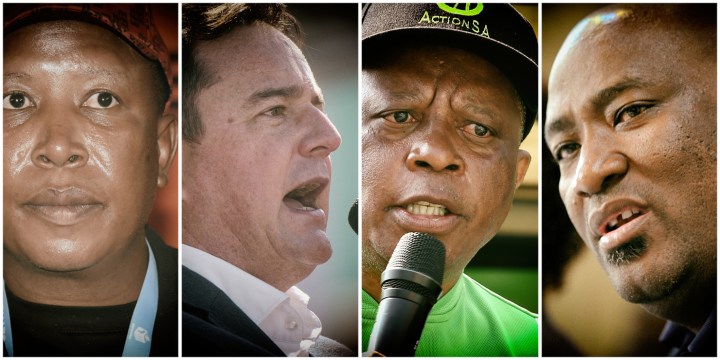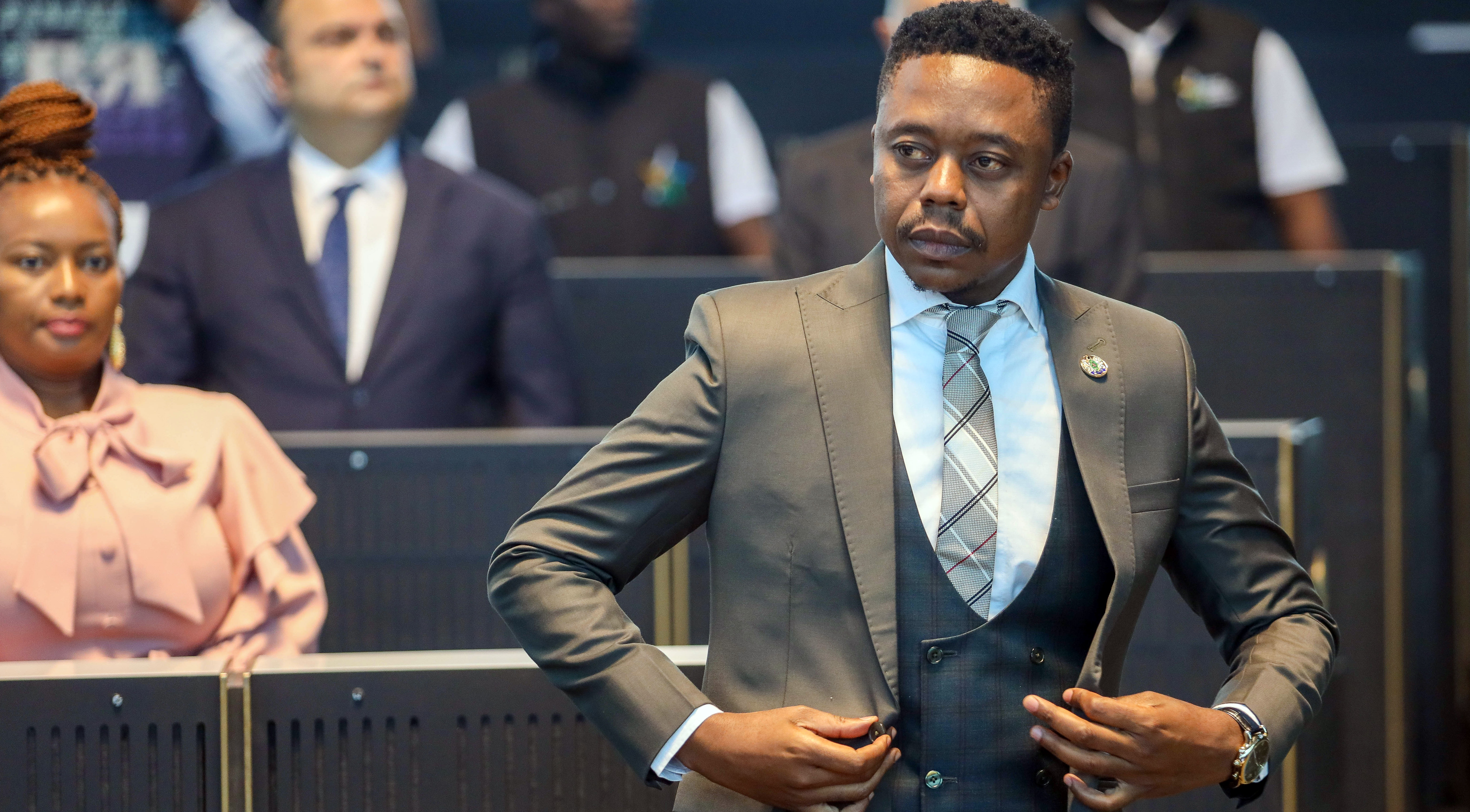EXPLAINER
Eight reasons why SA metro coalitions are imploding

Coalitions in South Africa’s major metros are reaching unprecedented new levels of instability simultaneously, with ongoing disputes in Johannesburg, Ekurhuleni and KwaZulu-Natal. The major losers are the South African people.
Below, we look at the factors enabling the coalition mess in South Africa’s major metros to play out.
1. There are no laws governing South African coalition agreements at present
This is arguably the biggest problem affecting the entire coalition ecosystem in South Africa, and remedying it would address many of the points below. Bodies ranging from the South African Local Government Association (Salga) to the DA have proposed amendments to the legislative framework to try to bring some stability to governance agreements.
Among the changes proposed by the DA: that coalition agreements must be formal, legally binding accords; that there should be more time available to parties to negotiate coalitions after election results are announced; and that there should be a limit to the frequency with which motions of no confidence can be brought in the legislature.
Even such measures will not be a silver bullet — since, as Wits law professor Marius Pieterse wrote in 2020: “One cannot legislate against political pettiness.” It is generally accepted that the environment in which coalition governments work best is one of political maturity — not, sadly, a description which finds much resonance in South Africa.
2. As things stand, parties can simply walk away from agreements
Salga’s report on local government coalitions, prepared by the Dullah Omar Institute in 2021, notes that there are multiple problems currently with coalition agreements in municipalities, including that they are vague and often not available to the public.
Although parties recently have been publishing coalition agreements in the hope that making these contracts public will cause those reneging on them to lose credibility, there are few signs that this is working.
The Patriotic Alliance (PA) led by Gayton McKenzie is a particular villain here, having repeatedly either exited coalitions or threatened to do so since its improved election performance in 2021.
3. Parties are desperate to get their own candidates into key positions
This is what the DA says happened recently with ActionSA: it fielded its own candidate for mayor in Johannesburg despite all coalition partners (according to John Steenhuisen) agreeing to back the DA’s Mpho Phalatse.
See also Al Jama-ah, the Muslim-interest party which has proved more than happy to provide councillor Thapelo Amad as Johannesburg mayor despite the fact that every indication is that he will simply serve as a proxy before the “real” mayor is decided by the outcome of negotiations between the ANC and EFF.

Al Jama-ah’s Thapelo Amad has officially been sworn in as the Executive Mayor of the City of Joburg on 30 January 2023 in Johannesburg, South Africa. Amad became mayor after the Democratic Alliance’s Mpho Phalatse was removed during a motion of no confidence. (Photo: Gallo Images / Papi Morake)
Visit Daily Maverick’s home page for more news, analysis and investigations
4. Parties are particularly greedy for posts with economic opportunities
The Patriotic Alliance wanted the post of MMC for economic development in Johannesburg so badly that it was prepared to collapse the entire coalition for it, says Steenhuisen. This is par for the course: it is no secret that the portfolios in local government which allow the greatest access to contracts, tenders and deals are the ones which are most in demand by certain parties.
DA federal council chair Helen Zille previously described going into coalition with the EFF as follows: “[Julius Malema] would say: ‘Appoint this person as a municipal manager, give this tender to that company and ensure that you follow this policy. If you don’t, we’ll withdraw our support and your government will fall.’”
It is actually illegal for coalition talks to include discussions on municipal staff appointments or procurement decisions, the Salga report notes, but there is plenty of suggestion that this happens all the time regardless.
5. Parties want to demonstrate that they can govern before elections
It is hard to appeal to South African voters on the basis of your track record in governance if you don’t have one — and as the 2024 national elections approach, we are likely to see more parties willing to do what it takes to take over sites they can then point to during election campaigns.
The IFP said on Monday, for instance, that the EFF made a proposal in January where the party “expressed their desire to govern a municipality in Gauteng and KwaZulu-Natal where they would demonstrate good governance by the EFF”.
6. There is nothing holding parties to claims they make to the electorate
Before elections, the ANC can assure voters that it will not enter into coalitions with the EFF and then do the opposite — and vice versa. As Daily Maverick’s Stephen Grootes pointed out on Monday, the EFF’s Malema has continued to badmouth the ANC to the public while privately engaging in coalition talks in Ekurhuleni.
One of the recommendations contained in the 2021 Salga report is that party leaders should be required to consult internally — among members and not just other leaders — to ensure that the arrangements being brokered reflect the wider will of the party.
7. Coalition wrangling in one place causes blow-ups elsewhere
Call this the Coalition Butterfly Effect. As an example: the EFF is now attempting to remove the IFP from power in up to 13 municipalities in KwaZulu-Natal as revenge for the IFP not voting with the EFF in Johannesburg.
These kinds of manoeuvres may have literally nothing to do with the politics or people who end up being most affected.
8. Politicians put power ahead of people
Other than the absence of a legislative framework helping to control coalition conditions, this is the other largest issue within the South African political system.
In basic terms, the link between a vote being cast and a political party then following the mandate whereby it won that vote appears to be almost entirely broken. Coalitions are formed and uprooted with precious little attention to shared values or policies, because all that matters is achieving — and staying in — power.
Until the basic principle of serving ordinary people takes precedence over scrambling for power, don’t expect this to change. As many analysts have noted, a disturbing effect is likely to be that voter turnout falls lower and lower every election — meaning that the results themselves represent an ever weaker version of “the will of the people”. DM



















 Become an Insider
Become an Insider
Should 10% of the number of voters in the previous elections petition for new elections, new municipals elections must take place in that council. Could extend this to Provincial and Federal levels as well
The final point is, to me, the most salient. The idea of politicians and political parties assuming power over the citizens and the country’s resources is absolute anathema to any real understanding of democracy. Power in a real democracy resides in the people. Until we change the way we understand democracy, and take power out of the equation we will be constantly faced with the complete nonsense we are seeing here and indeed across the world; from Mangaung to Moscow.
Oh, I thought that there was only 1 reason…
If there can be a law governing coalitions, then we are on the road to perdition and the electorate will be undermined because the outcomes are such that certain people or political parties would want to impose certain views and values on other people. The coalition disaster is the failure of parties to provide the electorate with a vision that they can believe in. To gerrymander electoral outcomes by seeking to regulate coalition would be unconstitutional. What we have in Tshwane is a coalition that works despite challenges and for the DA to seek regulation is very rich given that there was no such when the Cape Town Metro was governed by a coalition led by the very Zille. Now they think that they are big enough to have regulations. The ANC thinks that losing metros is not correct and being outside coalitions you need a mechanism to get into government like in NElson Mandela Bay Metro. After years of a kleptocratic hegemony in national and local politics, when that changes you cannot expect that coalitions would work smoothly when for the first time the electorate has decided through the ballot that they are the reality. Parties with common ground will find each other. If we must have elections regularly like in Italy so be it! However, the cost of elections is such that parties would avoid a situation that would stretch resources that thy do not have! We reject this rubbish with the contempt it deserves.
Al Jama-ah’s Thapelo Amad is merely a puppet mayor. Keep your head in the sand Al Jama.
Please, please, please can’t you photoshop the boogers out of Malema’s nose?